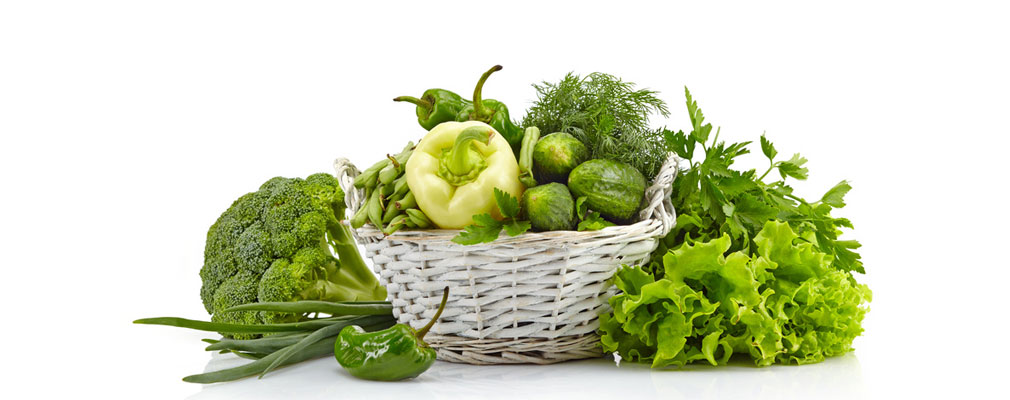When
it comes to food choices, most people head for
something sweet... cake, cookies, candy, pie, ice
cream, soda pop and more. Pile it high, pile it deep
just as long as it is sweet, sweet, sweet. As much as
the body has a 'sweet tooth' and likes to exercise
it, too much sweet is a known killer. In an effort to
avoid succumbing to the 'sweet epidemic,' how about
going bitter?
While the thought may initially be
revolting, introducing bitter foods into your diet
may prove to be a life saver.
BITTER:
What is it?
Bitters and bitter-tasting herbs and foods
have been used for millennia to enhance/improve the
body's overall well being. Bitter foods have a bitter
taste because they contain plant-based chemicals that
boost nutritional quality and the body's ability to
process and absorb nutrients. Higher nutrient
availability and intake produces a superior quality
of life.
BITTER:
The benefits
Bitter-tasting foods exhibit health
advantages not found in other foods, especially
sweets. Bitter foods have the following unique
profile as a health aid.
- Enhance/improve
the digestion process
- Protect
against disease by stimulating the body's
defense system through higher antioxidants
levels
- Protect
against cancer, heart disease, diabetes, and
reduce inflammation.
- Assist
in controlling appetite and reduce cravings
(especially sugar cravings so they can help
weight control)
- Contain
'super' nutrients such as vitamins A and C,
folate, fibre, potassium and calcium
- Contain
fiber, both soluble and insoluble, which
stimulates the growth of healthy gut bacteria
- Help
regulate hunger
- Quell
cravings for sweets
Most
bitter foods are entirely nutritious on their own and
therefore act as a catalyst for starting the
digestive process. Digestion begins in the mouth, and
bitter foods have been considered a digestive aid for
thousands of years because their bitter taste
stimulates saliva and stomach acid production. They
also act as a pre-biotic in the gut.
In
turn the body is able to absorb more nutrients
because of extra enzymatic action that prevents food
malabsorption and leaky gut, in which food particles
and/or microbes make their way out of the intestines
and into the bloodstream, causing inflammation.
BITTER:
The foods
Bitter foods are not difficult to find. Many
grow naturally on the land and can be safely foraged
for food. Due to their superiority as a health aid,
many natural health stores as well as large
supermarkets now offer varieties of bitter foods.
Shop the following list to find some of the more
popular bitter foods.
- arugula
- broccoli
- brussels
sprouts
- cabbage
- cauliflower
- citrus/lemon,
lime, grapefruit
- cocoa
- coriander
- dandelion
greens/tea
- dark
chocolate
- dill
- ginger
- jerusalem
artichokes
- kale
- peppermint
- rocket
- sesame
seeds
- silverbeet
- spinach
- sesame
seeds/tahini
- turmeric
- watercress
BITTER:
Eating strategies
Incorporating bitter foods into one's diet
is not difficult but often involves re-educating
one's tastebuds. While doing so may not appeal to
most people,
it is surprisingly simple. Start 'eating bitter' by
seeing what choices are available and shop
accordingly. Purchase one or two 'bitters' at a time
to ease into the bitter is better routine.
For the sake of practicality, incorporate bitter
foods into your daily diet using the following
strategies.
- Salads-
break in bite-sized pieces a variety of
bitter foods, especially greens, to create a
generous-sized salad.
- Smoothies-
blend bitter greens with fresh fruit to
please the palate.
- Raw
soups- blend bitter greens with
fresh fruit or vegetables to please the
palate.
- Pestos-
bitter foods make delicious pestos
that can be used as toppings, dips, spreads
or salad dressings
- Finger
foods- cruciferous vegetables are
excellent finger foods that can be eaten as
snacks or incorporated in salads and
smoothies
- Sprouts-
grow bitter foods as sprouts and use them in
salads, smoothies or eat as finger foods
- Tea-
bitter herbs/spices in warm but not hot water
- Tinctures-
some bitter foods/spices make excellent
tinctures that can be used medicinally
- Supplements-
Some bitter foods are available in supplement
form though such products should not be
regarded as preferencial choices
There
are countless ways to enjoy bitter foods for what
they are and what they contribute to attaining
vibrant health. The simplest and most direct approach
to enjoying them is to forgage or pick them fresh
from the garden and eat them raw. Doing so
retains their optimum nutrient content while
minimizing preparation time and energy,.
In
conclusion
It could be said that bitter foods have a
bad reputation or at lease a bad appeal for the
average eater. This fact is confirmed at the
supermarket checkout as shoppers load up on cases of
soft drinks, ice cream, gooey desserts, pizza and
more. Rarely does one see a plethora of bitter
greens, herbs, and cruciferous vegetables being
checked out. So it is that ill health abounds.
It is
sad but true that the principles of proper nutrition
are a bitter pill for most people to swallow.
Nevertheless, countless scientific, medical, and
biblical studies prove that eating a plant-based,
living foods diet is the key to optimum health.
Perhaps there will come a day when the 'bitter truth'
about bitter foods will ring true and be accepted for
what they are and can do. In the meantime, bitter
foods remain a mystery to most people. Nevertheless,
it is important to note that when the children of
Ishrayah left Egypt at Passover time, YHVH instructed
them to prepare a meal that included bitter herbs. If
bitter herbs were good for our ancestors of old,
should we not be eating them today?
This
being said, be bold!.
Be determined! Dare to discover
the bitter truth
about bitter foods today! Truly you will agree that bitter
is better!

O taste and see that YHVH is
good:
blessed is
the man that
trusteth in him.
Psalms 34:8
And they shall eat the flesh in
that night,
roast with fire, and unleavened bread;
and with
bitter herbs
they shall eat it.
Exodus 12:8
Back to LIVING Letter #143 / Index

